RBS: how to split it up and save money on expensive bankers
Sell off the good bits, and you won't need a big bonus master of the universe to look after what's left

A free daily email with the biggest news stories of the day – and the best features from TheWeek.com
You are now subscribed
Your newsletter sign-up was successful
NOT FOR the first time, one has to wonder how David Cameron would get on without Ed Miliband to help him. By forcing Stephen Hester to turn down his £1 million pound bonus, the Labour leader has extricated the Prime Minister from a row which even many of his staunchest supporters thought he was badly mishandling.
The prospect of a Commons vote on the package, which would surely have been lost, must have horrified the PM every bit as much as it clearly did Hester himself. Yet one of the most extraordinary things about the RBS chief's pay, given that he works for a publicly owned concern, is that no outsider seems to know how much he is actually getting.
Some reports at the weekend claimed he might have made as much as £35 million so far for his stint at the troubled bank, while others said that even if he turned down the £1 million (as he now has) he was still in line for different bonuses worth several times as much.
The Week
Escape your echo chamber. Get the facts behind the news, plus analysis from multiple perspectives.

Sign up for The Week's Free Newsletters
From our morning news briefing to a weekly Good News Newsletter, get the best of The Week delivered directly to your inbox.
From our morning news briefing to a weekly Good News Newsletter, get the best of The Week delivered directly to your inbox.
What does not seem to have occurred to either the Government or its critics is that, the way RBS is going, Hester may work himself out of a job sooner than they suppose. If this does happen it will not be because the bank has miraculously come right, but because the mission he originally embarked on has – through no fault of his own – turned out to be impossible.
Back in 2008, when RBS was rescued, the expectation was that it could be returned to the private sector in relatively short order and possibly even at a profit. Ironically, in view of the latest row, much of the value that Labour ministers at the time hoped to recover for the taxpayer was reckoned to reside in its investment bank and other City operations.
But as the economy stubbornly refuses to revive, and banks around the Western world continue to shrink, plans have had to change. Abroad, RBS's activities are being slimmed right back, while at home the investment bank is being radically pruned on the orders of the Chancellor.
The venerable stock-broking arm, Hoare Govett, is about to be sold for "a nominal sum". Next up are likely to be the profitable insurance operations, including Direct Line, Churchill and Green Flag, which have to go by the end of next year under the terms of its bail-out agreement with the EU.
A free daily email with the biggest news stories of the day – and the best features from TheWeek.com
Once they are sold, RBS will be reduced to a collection of largely domestic, comparatively humdrum businesses. The danger then will be that it lingers on as a zombie, unable to shake off its toxic legacy of boom time loans, and dragging down the economy for years, if not decades to come.
To avoid that, it might well be best to split what is left into good and bad components, as the Irish have done with their banks and as the Treasury has here with Northern Rock. This would mean that the taxpayer gets landed with having to work through the dud loans. But we have effectively got those already, and at least the viable parts could be refloated and help restore the flow of credit to businesses and consumers.
From a political point of view, splitting it would also have the advantage that what remains should no longer need the services of a big bonus master of the universe. A traditional bank manager would be much more the ticket – and much cheaper, too.
At the Irish bad bank, NAMA, which has so far been charged with disposing of some 70 billion euros of dodgy debt, the boss is on 430,000 euros a year. Not only has he foregone any bonus for the last two years, but he has also just agreed to accept a 15 per cent reduction in his basic salary for the coming one, out of solidarity with his compatriots.
In this country, the head of UK Asset Realisation Ltd, which has taken on the bulk of Northern Rock's old loan book as well as that of the Bradford and Bingley, does better, but not that much. In its first year he received a total package, including bonus, pension and allowances, of just over £550,000.
No one disputes that Stephen Hester is doing a good job. But the job is changing, and that could well throw up the opportunity to get it done for less. It is the sort of point a razor-sharp investment banker would grasp in a nanosecond.
-
 How the FCC’s ‘equal time’ rule works
How the FCC’s ‘equal time’ rule worksIn the Spotlight The law is at the heart of the Colbert-CBS conflict
-
 What is the endgame in the DHS shutdown?
What is the endgame in the DHS shutdown?Today’s Big Question Democrats want to rein in ICE’s immigration crackdown
-
 ‘Poor time management isn’t just an inconvenience’
‘Poor time management isn’t just an inconvenience’Instant Opinion Opinion, comment and editorials of the day
-
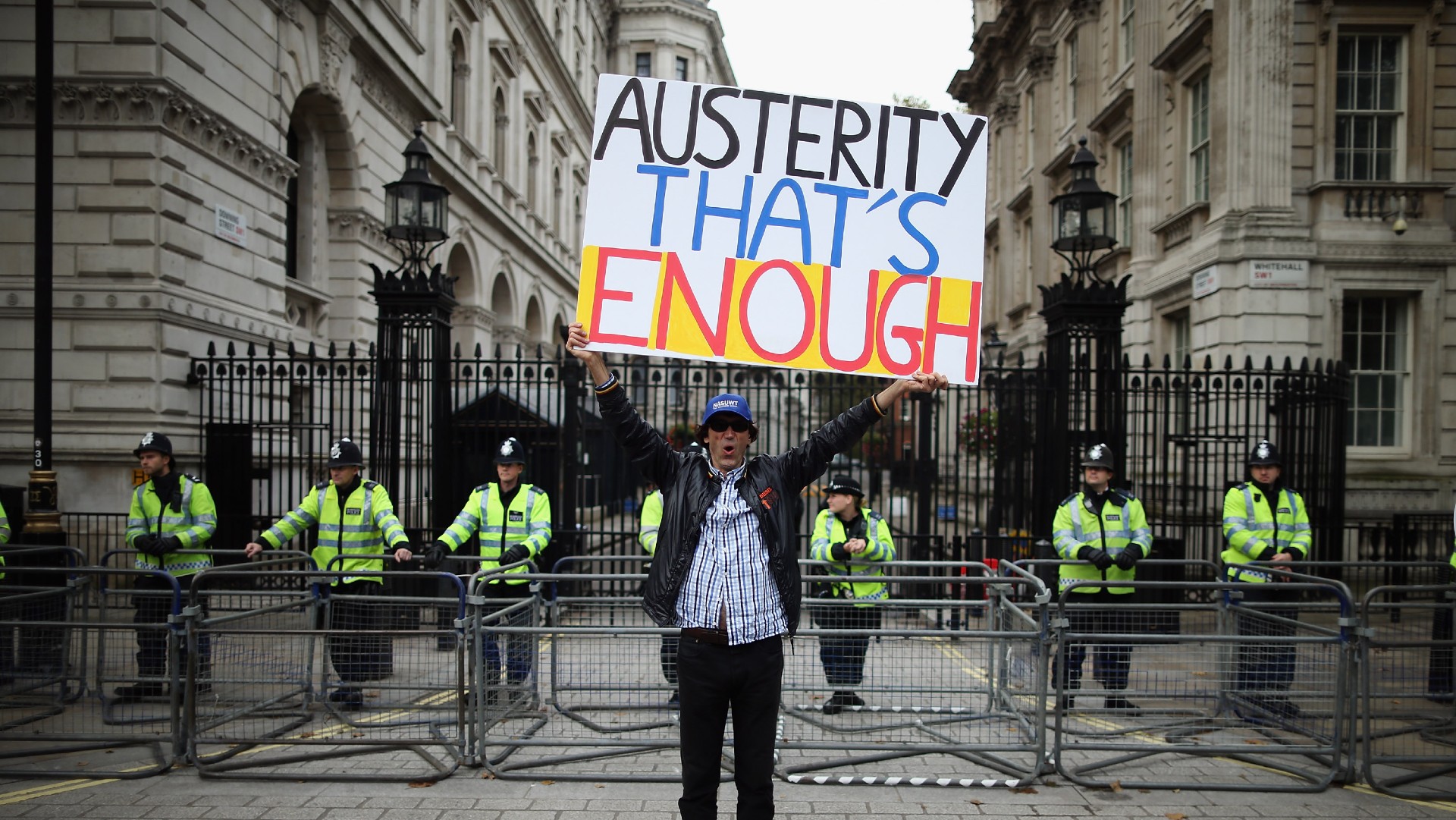 Do Tory tax cuts herald return of austerity?
Do Tory tax cuts herald return of austerity?Today's Big Question Chancellor U-turns on scrapping top rate tax but urges ministers to make public spending cuts
-
 Why the government opposes a windfall tax on oil and gas profits
Why the government opposes a windfall tax on oil and gas profitsfeature BP profit surge triggers renewed calls for a levy to help struggling households
-
 NatWest and RBS trial new fingerprint bank cards
NatWest and RBS trial new fingerprint bank cardsSpeed Read Biometric payment system will allow customers to spend more than £30 using contactless cards
-
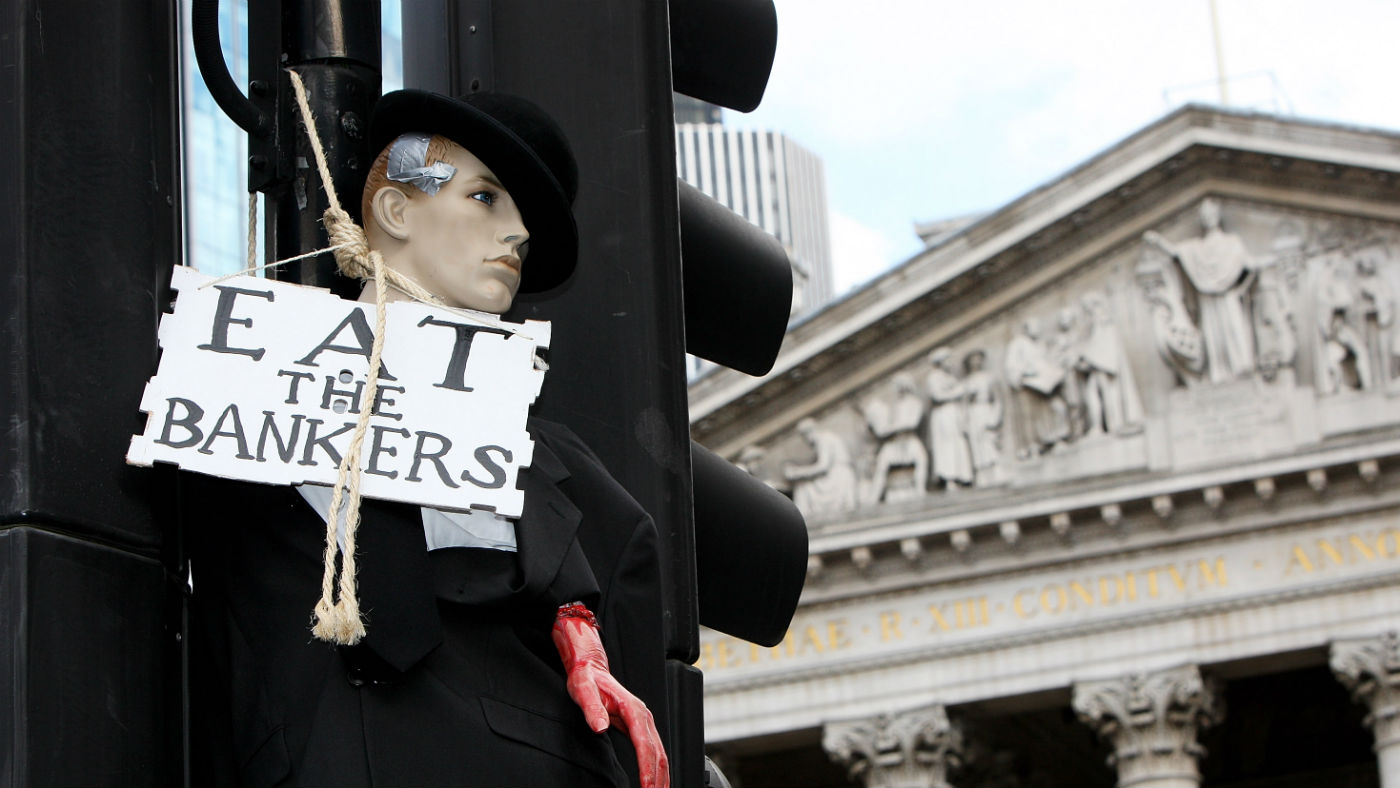 Two-thirds of Brits still don’t trust banks
Two-thirds of Brits still don’t trust banksSpeed Read Ten years on from the financial crisis, survey finds trust for banking system in short supply
-
 What is Britain’s worst bank?
What is Britain’s worst bank?Speed Read Royal Bank of Scotland comes joint-bottom in the new personal banking league table, and last for business banking
-
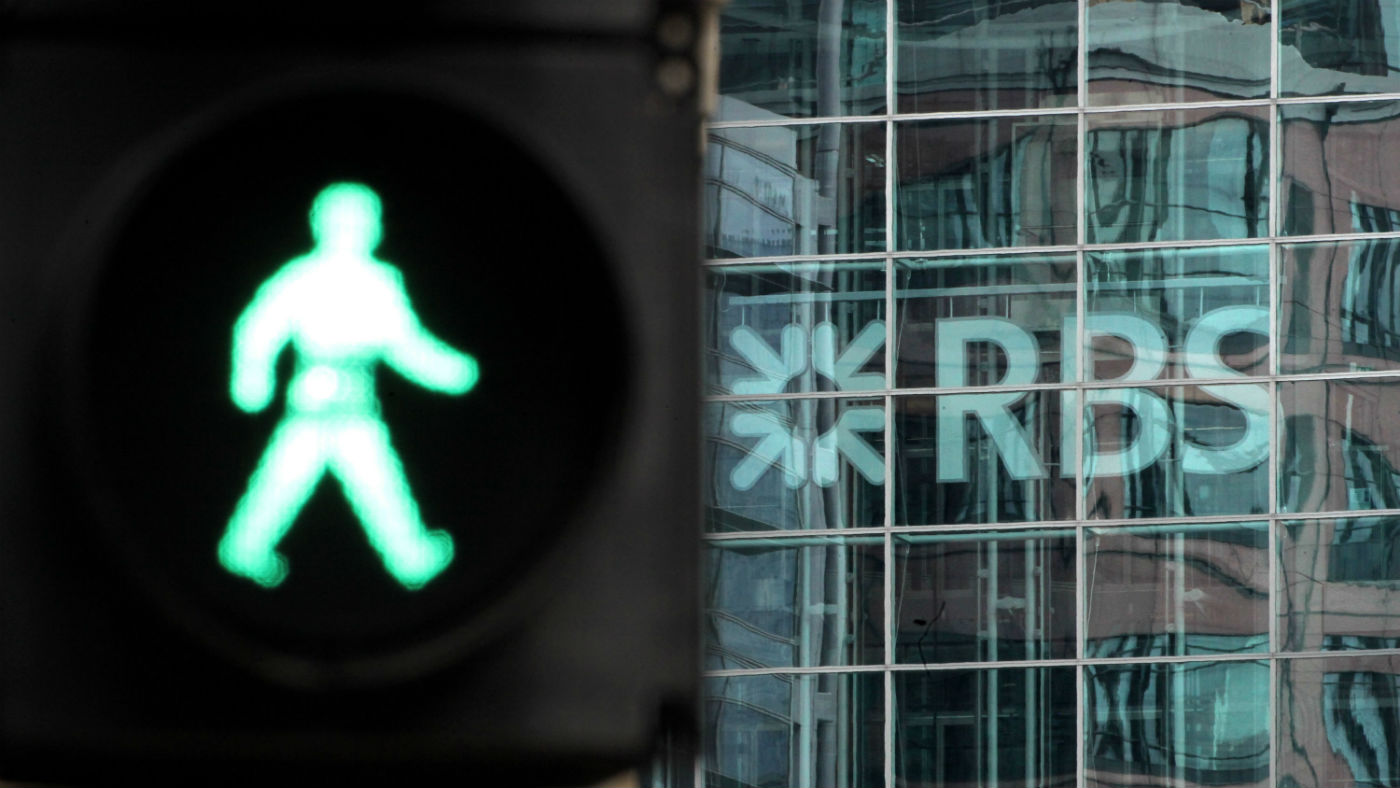 RBS set for biggest privatisation in UK history
RBS set for biggest privatisation in UK historySpeed Read US regulators impose $4.9bn penalty and pave way for Government to sell its 70% stake
-
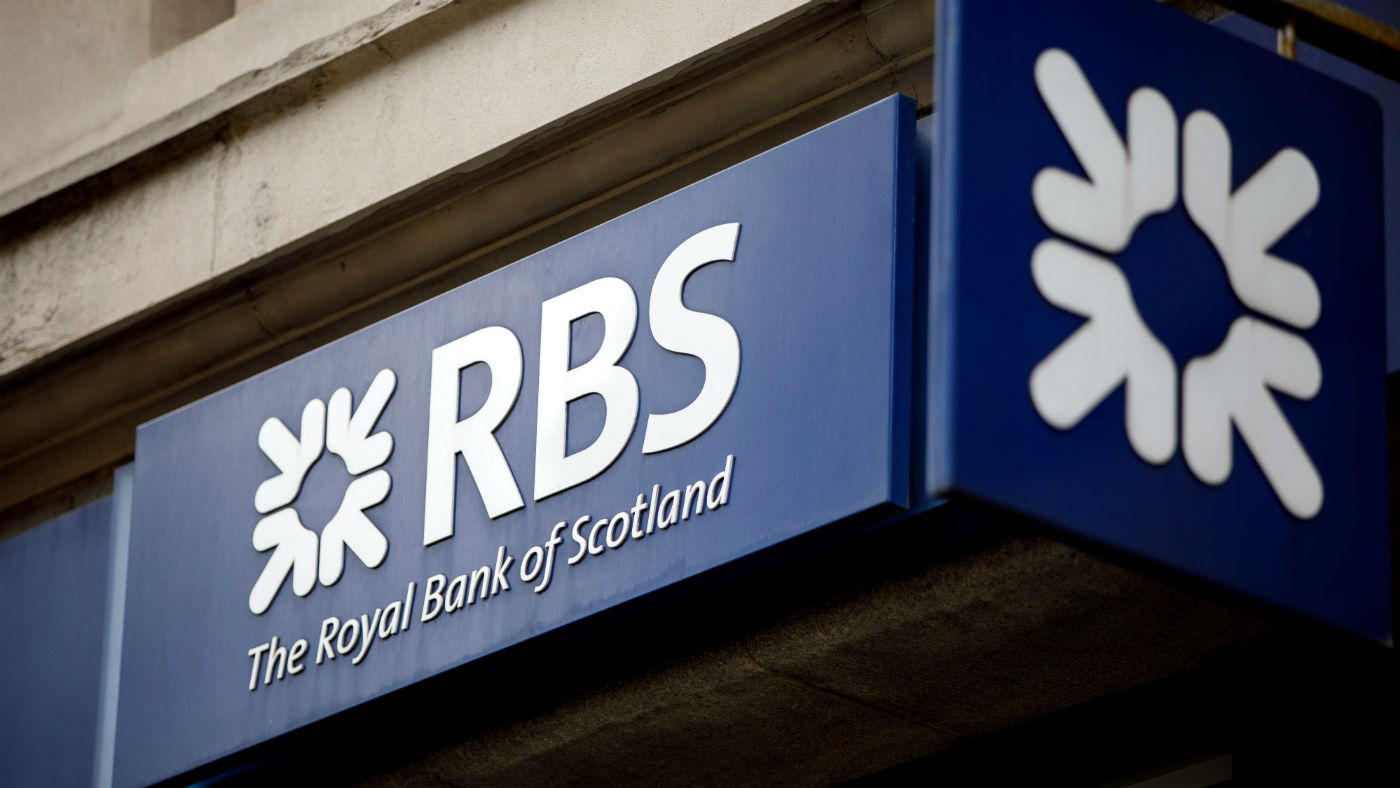 RBS to cut 162 branches and 792 jobs
RBS to cut 162 branches and 792 jobsSpeed Read Move comes days after taxpayer-owned bank announced 206% rise in profits
-
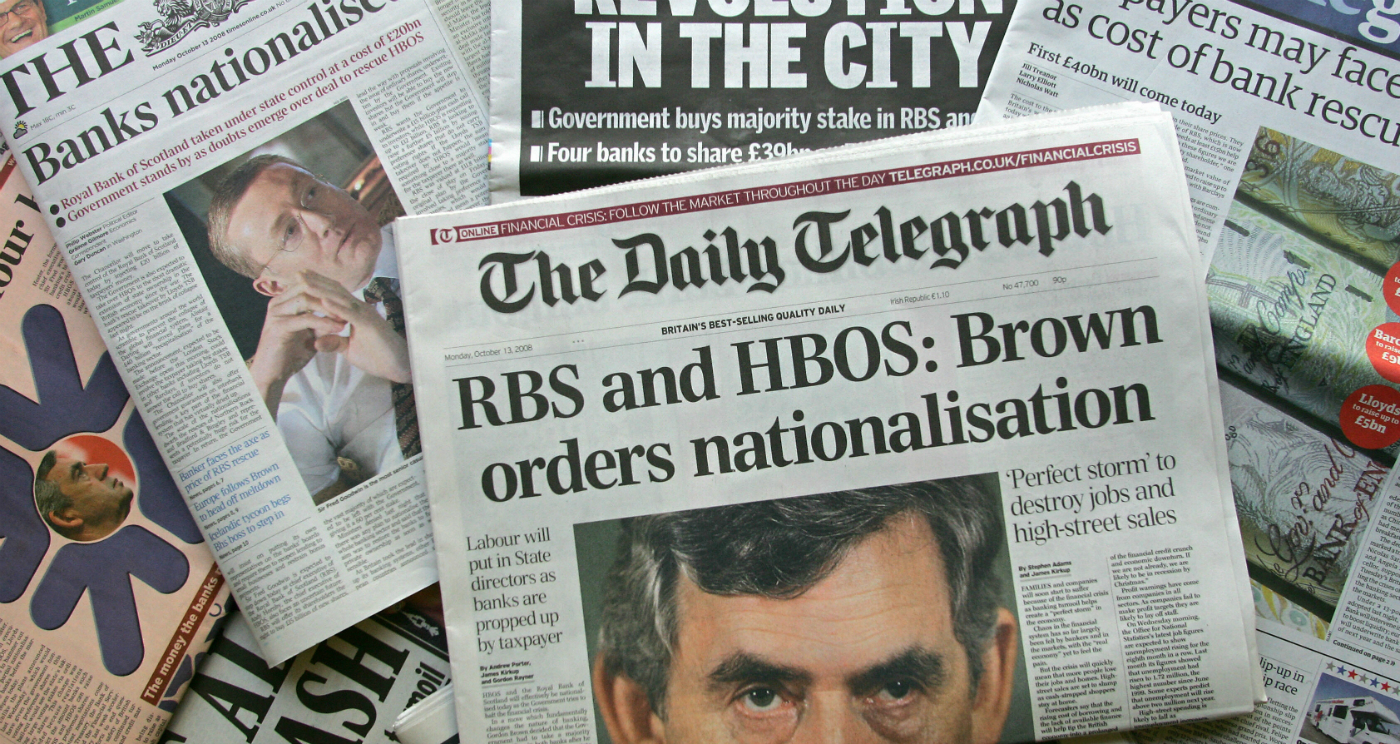 RBS memo to ‘let customers hang themselves’ sparks fury
RBS memo to ‘let customers hang themselves’ sparks furySpeed Read Ex-MP says callous banking tactics following 2008 crash drove small business owners to suicide